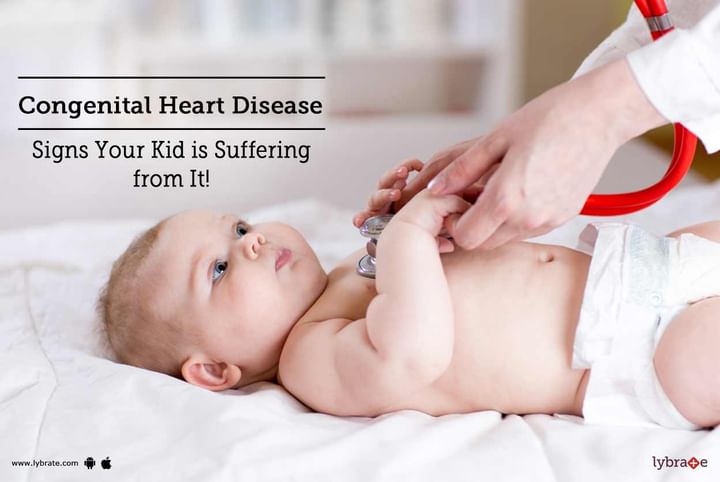Congenital Heart Disease - Signs Your Kid is Suffering from It!
Most families refer to their newborn baby as their 'bundle of joy'. The news of a child being born brings immense joy to the entire family. However, due to various reasons, a child could be born with some medical abnormalities, which would be known as congenital abnormalities. There are several different types of heart defects that can be congenital. These usually manifest themselves either immediately after birth or in the early years of life. In some cases, the abnormality could be detected on prenatal ultrasounds. In others, it may not be and the family could be caught off guard about the condition. This causes a lot of stress, both for the child, who does not receive regular postnatal care and for the parents immediately after the delivery process.
If the baby has the following symptoms within the first few hours of life, there could be a serious underlying condition, which requires medical attention. The presence and severity of the symptoms would depend on the actual abnormality.
- The skin is pale gray or blue in color due to excessive venous flow in the system
- Excessive sweating
- The child is exerting to breathe regularly
- Rapid breathing causes added load on the heart accompanied by a grunting noise
- Flared nostrils i.e. the baby attempts to take in more oxygen with each breath causes flared nostrils
- Swollen legs, eyes, and abdomen: Fluid retention in the legs and abdomen is quite common, and this could be characteristic of newborns with congenital heart disease
- Shortness of breath, even during feeding
- Clubbed fingernails
- Lethargy and low energy, even with feeding, therefore very poor feeding pattern
- Chest pain, which may cause the newborn to cry incessantly
- Low weight gain, as they feed less
In some children, symptoms manifest only during the teenage years or early adulthood. These conditions are not very severe and the symptoms include:
- Swelling of the hands, feet, and ankles due to fluid accumulation
- Lowered energy levels, leading to easy fatigue
- Shortness of breath with even minimal physical activity
- Inability to exercise
- Developmental delays and changes in growth milestones
- Recurrent respiratory tract infections including sinus infections, bronchitis, and pneumonia
- Endocarditis
- Pulmonary hypertension
- Heart failure, where the heart is not able to effectively function and pump blood to all parts of the body.
Some or more of these symptoms should trigger a warning to get the child tested for congenital heart disease. While some would just require a monitoring until severe symptoms develop, severe conditions like holes, abnormal valves, narrowed arteries, and blood vessel abnormalities might require immediate intervention. If you wish to discuss about any specific problem, you can consult a cardiologist.



+1.svg)
